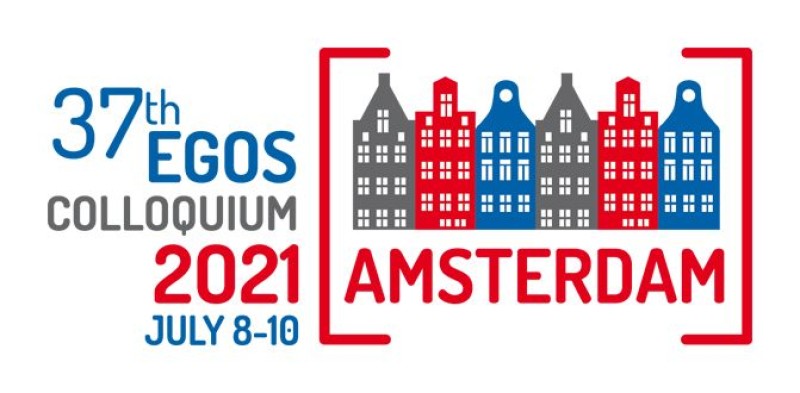Sub-theme 33: Historical Organization Studies in Action: Strategy, Entrepreneurship, and Social Innovation
Call for Papers
Historical organization studies is ‘organizational research that draws on historical sources, methods and knowledge to
explore, refine and develop theoretical ideas and conceptual insights’ (Maclean et al., 2016). Put simply, it seeks to blend
history and organization studies. Its status is that of emergent academic movement rather than established community of practice.
For over two decades, organization theorists have emphasized the need for more and better research recognizing the importance
of the past in shaping the present and future (Clegg, 2006; Kieser, 1994). Some have identified a distinct historic turn
in organization studies led by scholars who perceive the field to have been constrained by its orientation towards contemporary
cross-sectional studies covering limited periods of time (Clark & Rowlinson, 2004; Mills et al., 2016). By historicising
organizational research, it is argued, the contexts and forces bearing upon organizations might be more fully recognized
and analyses of organizational dynamics might be improved. But how, precisely, might a traditionally empirically-oriented
discipline, such as history, be incorporated into a theoretically-oriented discipline such as organization studies? In recent
years this has been the topic of extensive debate, giving rise to a number of ground-breaking publications (Bucheli &
Wadhwani, 2014; Kipping & Üsdiken, 2014; Rowlinson et al., 2014; Suddaby et al., 2010) and a flurry of Special Issues
in journals including, inter alia. Academy of Management Review, Organization Studies, Management Learning,
and Organization.
The convenors of this sub-theme believe that we are now entering a new phase
in the establishment of historical organization studies as a distinctive methodological paradigm, concerned above all with
putting historical organization studies into action. Scholars have been using organizational research in historical
work over many years but it has tended to be implicit. Now it is becoming more epistemologically and methodological explicit
as a singular type of reasoning, often dealing with very fragmentary data created for other purposes (Suddaby et al., 2020;
Tennent et al., 2020).
The time is now ripe to extend, deepen and at the same time to showcase what historical
organization studies can contribute to research within the domains of strategy, entrepreneurship and social innovation (Harvey
et al., 2019; Mutch, 2007; Vaara & Lamberg, 2016; Wadhwani & Jones, 2014). Interest in research combining theory with
historical sources and methods is plainly on the rise (Durepos et al., 2020).
This sub-theme is intended
to galvanize thinking, to serve as a catalyst in both the development of the field and in building a community of scholars
with a shared interest in enacting historical organization studies. We are, therefore, seeking papers that advance this agenda
in several ways:
First, as critical and theoretical research to extend and deepen what has already been accomplished;
Second, as methodological research; and
Third, as empirically founded research with a theoretical focus in the areas of strategy, entrepreneurship and social innovation, embracing not-for-profit organizations and the public sector (Harvey et al., 2011; Maclean et al., 2013).
The narrative to this point suggests that history and organization
studies have largely been separate worlds. It is time to move beyond separate world papers; to engage in the work of creating
theoretically informed empirical papers that reflect historical organization studies in action.
References
- Bucheli, M., & Wadhwani, R.D. (eds.) (2014): Organizations in Time: History, Theory, Methods. Oxford: Oxford University Press.
- Clark, P., & Rowlinson, M. (2004): “The treatment of history in organisation studies: Towards an ‘historic turn’?” Business History, 46 (3), 331–352.
- Clegg, S. (2006): “The bounds of rationality: Power/history/imagination.” Critical Perspectives on Accounting, 17 (7), 847–863.
- Durepos, G., Maclean, M., Alcadipani, R., & Cummings, S. (2020): “Historical reflections at the intersection of past and future: Celebrating 50 years of Management Learning.” Management Learning, 51 (1), 3–16.
- Harvey, C., Maclean, M., Gordon, J., & Shaw, E. (2011): “Andrew Carnegie and the foundations of contemporary entrepreneurial philanthropy.”, Business History, 53 (3), 424–448.
- Harvey, C., Maclean, M., & Suddaby, R. (2019): “Historical perspectives on entrepreneurship and philanthropy.” Business History Review, 93 (3), 443–471.
- Kieser, A. (1994): “Crossroads – why organization theory needs historical analyses – and how these should be performed.” Organization Science, 5 (4), 608–620.
- Kipping, M., & Üsdiken, B. (2014): “History in organization and management theory: More than meets the eye.” Academy of Management Annals, 8, 535–588.
- Maclean, M., Harvey, C., & Clegg, S.R. (2016): “Conceptualizing historical organization studies.” Academy of Management Review, 41 (4), 609–632.
- Maclean, M., Harvey, C., & Gordon, J. (2013): “Social innovation, social entrepreneurship and the practice of contemporary entrepreneurial philanthropy.” International Small Business Journal, 31 (7), 747–763.
- Mills, A.J., Suddaby, R., Foster, W.M., & Durepos, G. (2016): “Revisiting the historic turn 10 years later: Current debates in management and organizational history.” Management and Organizational History, 11 (2), 67–76.
- Mutch, A. (2007): “Reflexivity and the institutional entrepreneur: A historical exploration.” Organization Studies, 28 (7), 1123–1140.
- Rowlinson, M., Hassard, J., & Decker, S. (2014): “Strategies for organizational history: A dialogue between historical theory and organization theory.” Academy of Management Review, 39 (3), 250–274.
- Suddaby, R., Coraiola, D., Harvey, C., & Foster, W.M. (2020): “History and the micro-foundations of dynamic capabilities.” Strategic Management Journal, 41 (3), 530–556.
- Suddaby, R., Foster, W.M., & Quinn-Trank, C. (2010): “Rhetorical history as a source of competitive advantage.” In. J.A.C. Baum 6 J. Lampel (eds.): Globalization of Strategy Research. London: Emerald, 147–173.
- Tennent, K.D., Gillett, A.G., & Foster, W.M. (2020): “Developing historical consciousness in management learners.” Management Learning, 51 (1), 73–88.
- Vaara, E., & Lamberg, J.-A. (2016): “Taking historical embeddedness seriously: Three historical approaches to advance strategy process and practice research.” Academy of Management Review, 41 (4), 633–657.
- Wadhwani, R.D., & Jones, G. (2014): “Schumpeter’s Plea: Historical Reasoning in Entrepreneurship Theory and Research.” In: M. Bucheli & R.D. Wadhwani (eds.): Organizations in Time: History, Theory, Methods. Oxford: Oxford University Press, 192–216.


